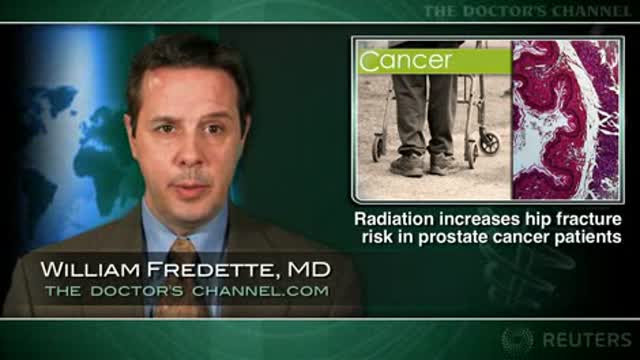Low total cholesterol does not lead to cancer
Reuters Health and The Doctor's Channel Daily Newscast
The two studies appear in the November issue of Cancer Epidemiology, Biomarkers & Prevention.
Commenting Tuesday in an American Association for Cancer Research briefing on the findings, Dr. Demetrius Albanes of the US National Cancer Institute observed that earlier studies suggesting that low cholesterol could cause cancer were “troubling” because lowering cholesterol is a “key component for preventing heart disease” and related conditions.
Dr. Eric Jacobs of the American Cancer Society, co-author of an editorial in the same issue of the journal, added at the briefing that the new findings should help dispel any lingering concerns in that area.
In the first study, Dr. Albanes and his colleagues observed 29,093 male smokers enrolled in a cancer prevention study for 18 years. Fasting and HDL cholesterol levels were assessed at baseline, and total of 7,545 cancers were detected during the follow-up period. Low total cholesterol levels were associated with an 18% higher risk of cancer overall, similar to the increases seen in previous studies.
But when the investigators excluded cancers that occurred in the first 9 years, the link between low cholesterol and cancer risk disappeared, suggesting that low total cholesterol levels were the result of an underlying cancer, not the cause, Dr. Albans explained.
Subsequent analyses showed that higher levels of HDL cholesterol were associated with a 14% decreased risk of cancer, even after excluding nine years of early cases.
In the second study, Dr. Elizabeth Platz of Johns Hopkins University and colleagues found a link between low total cholesterol and decreased risk of high-grade prostate cancer among 5,586 men over age 55. Specifically, men with a total cholesterol of less than 200 mg/dL had a 59% reduced risk of high-grade prostate cancer (defined as a Gleason score eight to 10). No association was seen for prostate cancer overall or for prostate cancer with a lower Gleason score.
Dr. Platz said her group’s study “supports another benefit of keeping cholesterol low among men in this age group.” However, she told Reuters Health during the briefing, this does not mean men should start taking cholesterol-lowering medications to prevent high-grade prostate cancer. A sub-group analysis of her study showed that men who had lower cholesterol but did not take cholesterol-lowering drugs had the same risk-reduction benefits as those who took medication.
Whether lowering cholesterol further by drugs or lifestyle changes could further reduce the risk of high-grade prostate cancers or, indeed, of other cancers will be an area of active research in years to come, experts at the briefing agreed.
Reference:
Cancer Epidemiol Biomarkers Prev 2009;18: 2805-06,2807-13,2814-21.






